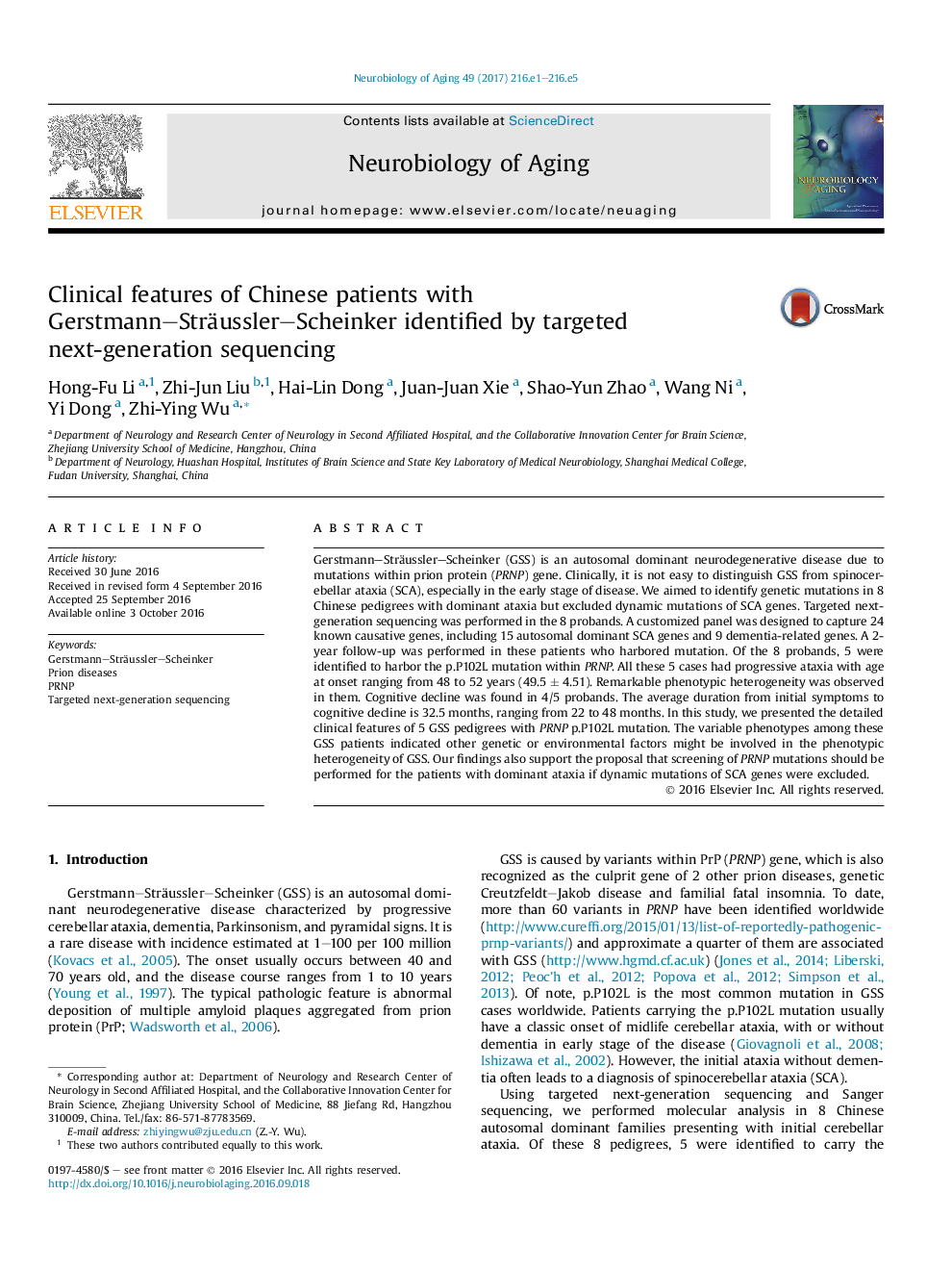| Article ID | Journal | Published Year | Pages | File Type |
|---|---|---|---|---|
| 4932888 | Neurobiology of Aging | 2017 | 5 Pages |
Gerstmann-Sträussler-Scheinker (GSS) is an autosomal dominant neurodegenerative disease due to mutations within prion protein (PRNP) gene. Clinically, it is not easy to distinguish GSS from spinocerebellar ataxia (SCA), especially in the early stage of disease. We aimed to identify genetic mutations in 8 Chinese pedigrees with dominant ataxia but excluded dynamic mutations of SCA genes. Targeted next-generation sequencing was performed in the 8 probands. A customized panel was designed to capture 24 known causative genes, including 15 autosomal dominant SCA genes and 9 dementia-related genes. A 2-year follow-up was performed in these patients who harbored mutation. Of the 8 probands, 5 were identified to harbor the p.P102L mutation within PRNP. All these 5 cases had progressive ataxia with age at onset ranging from 48 to 52 years (49.5 ± 4.51). Remarkable phenotypic heterogeneity was observed in them. Cognitive decline was found in 4/5 probands. The average duration from initial symptoms to cognitive decline is 32.5 months, ranging from 22 to 48 months. In this study, we presented the detailed clinical features of 5 GSS pedigrees with PRNP p.P102L mutation. The variable phenotypes among these GSS patients indicated other genetic or environmental factors might be involved in the phenotypic heterogeneity of GSS. Our findings also support the proposal that screening of PRNP mutations should be performed for the patients with dominant ataxia if dynamic mutations of SCA genes were excluded.
